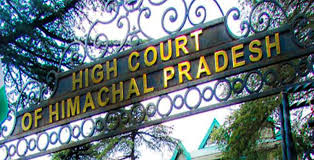(A) Code of Civil Procedure, 1908 – Order 7, Rule 17 – Indian Evidence Act, 1872 – Section 34 – Recovery Suit – Books entries without corroboration – Held: Learned Courts below have relied upon the entries in the Books of Accounts to charge the defendant with liability, which is impermissible. The Books of Accounts were properly proved but there is no corroboration to the entries. Hence, the conclusions drawn by the learned Courts below that the defendant is liable to pay the amount shown in the Books of Accounts is perverse and could not have been drawn by any reasonable person Decree set aside – Suit dismissed. (Para 49)
(B)Limitation – Burden of Proof – Since the plaintiff had pleaded that the suit was within limitation, in view of the part payment, therefore, the burden was upon the plaintiff to prove that the suit was within the limitation. (Para 15)
(C) Code of Civil Procedure, 1908 – Order 7, Rule 6 – Limitation Act, 1963 – Section 19 – Limitation – Acknowledgement in writing – Required – Held: The Courts below did not notice the provisions of Section 19 of the Limitation Act and the requirement of the acknowledgement in writing and erred in relying upon the payment made by the defendant to extend the period of limitation without insisting upon the writing. (Para 25)
(D) Limitation Act, 1963 – Article 1- Limitation – Mutual, Open and Current account – Applicability of – Plea of limitation under Article 1 of limitation Act on ground of “Mutual, Open and Current account” Plea Rejected- Held: Mutual open and current account defined in Article 1 of the Limitation Act, as a course of dealing where each party furnishes credit to the other on the reliance that on settlement of the accounts will be allowed so that one will reduce the balance due on the other. To be mutual, there must be transactions on each side creating independent obligations on the other and not merely transactions, which create obligations on the one side, those on the other being merely complete or partial discharges of such obligations. In the present case, the plaintiff was carrying out repairs and the defendant was making the payment. Therefore, there was no mutuality and Article 1 will not apply to the present case. (Para 26, 27)
(E) Indian Evidence Act, 1872 – Section – 67 – Evidence – Perpetrator of Document – Entry in account book – Proof of – Examination of person who made entries – Recovery Suit – Held: In the present case, the truth of the entry regarding the payment could not have been proved without examining person, who had made such entries. Learned First Appellate Court erred in relying upon the entries, without getting these proved from the competent person. (Para 28 to 31)
HIGH COURT OF HIMACHAL PRADESH
2023 STPL(Web) 146 HP
Smt. Bimla Devi Vs. M/S Bittam Garages Through Its Proprietor Sh. Shalender Gupta (Deceased) Through His Lrs.
RSA No. 310 of 2008-Decided on 06.09.2023
https://stpllaw.in/wp-content/uploads/2023/09/2023-STPLWeb-146-HP.pdf







